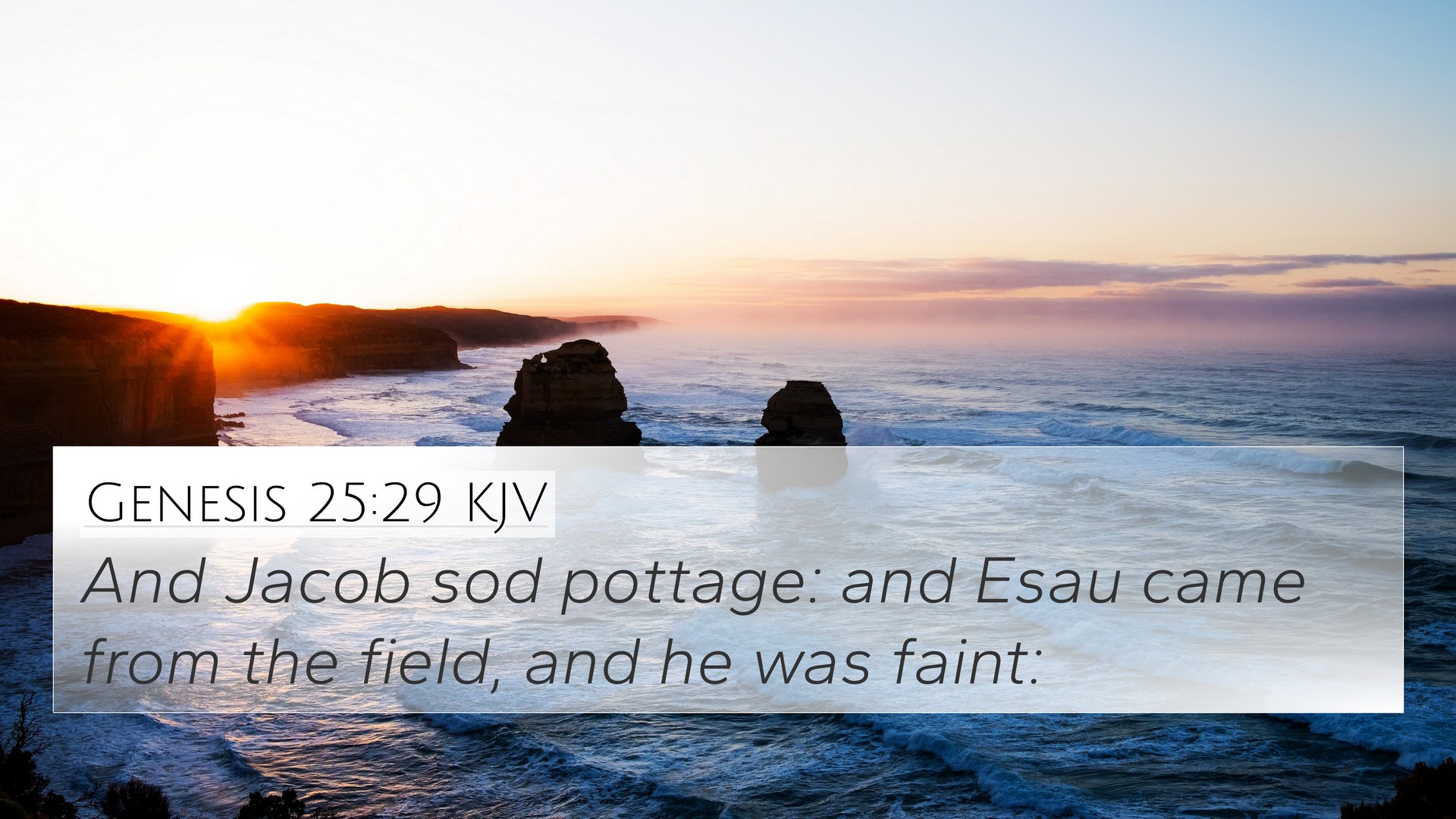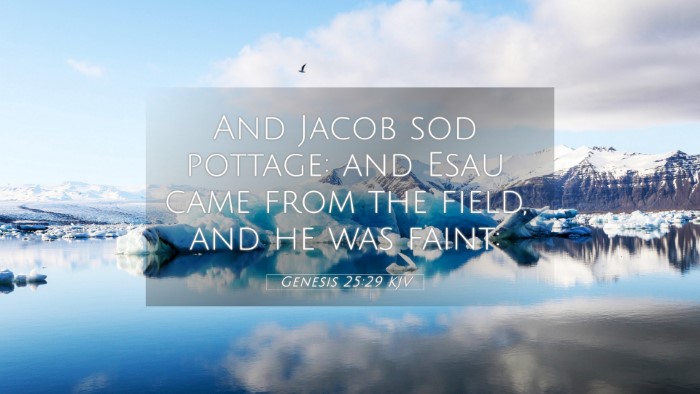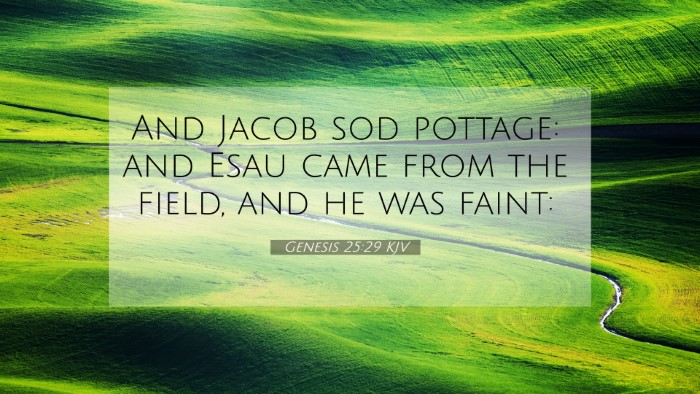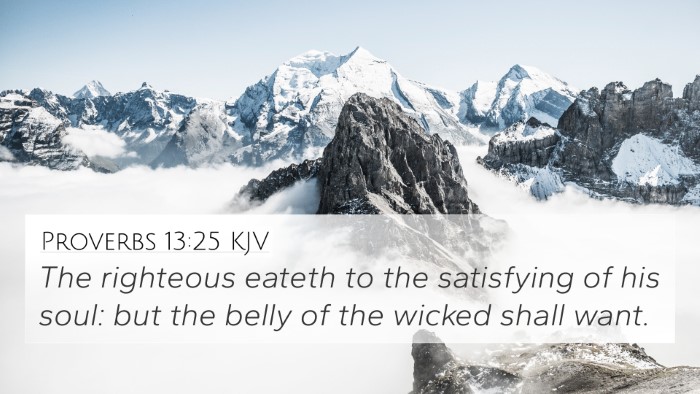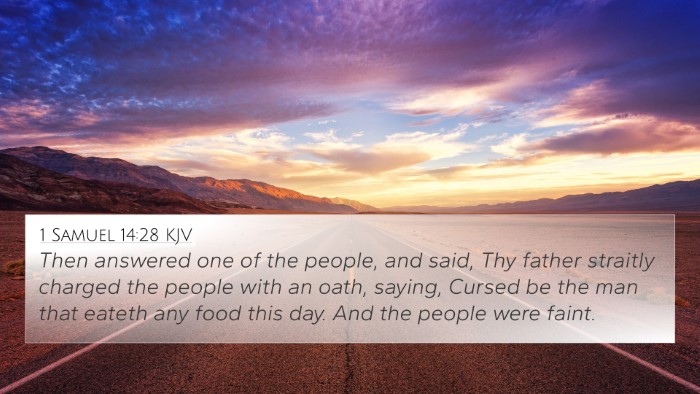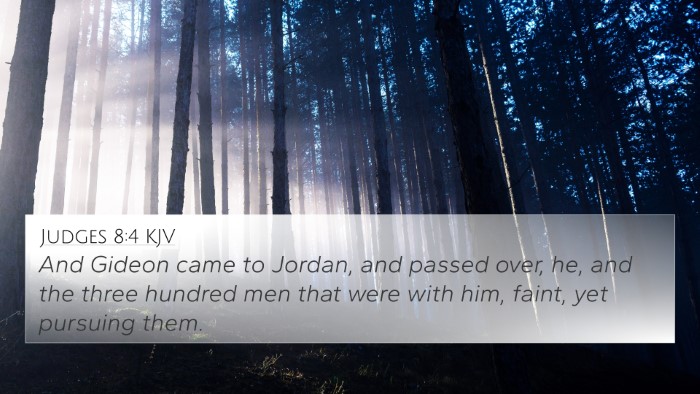Genesis 25:29 - Summary and Meaning
Verse: "Once when Jacob was cooking some stew, Esau came in from the open country, famished."
Context: This passage sets the stage for a pivotal moment in the relationship between the two twin brothers, Jacob and Esau. It reveals Esau's impulsive nature and Jacob's opportunism, focusing on themes of birthright and familial dynamics.
Interpretative Insights
-
Matthew Henry's Commentary
Henry observes the immediate need of Esau as a critical turning point, showcasing his weakness. He emphasizes that this moment illustrates the importance of spiritual discernment over physical desires, as Esau sells his birthright merely for a meal.
-
Albert Barnes' Notes
Barnes highlights the contrast between Esau and Jacob regarding their values; Esau’s focus on immediate gratification ultimately leads to regret. He notes that this event foreshadows broader themes of blessing and lineage within the Abrahamic covenant.
-
Adam Clarke's Commentary
Clarke provides a detailed cultural backdrop, explaining the significance of the birthright in Ancient Israel. He suggests that Esau's decision reflects a lack of respect for his inheritance, promoting a discussion on the choices we make concerning our spiritual heritage.
Thematic Connections
This verse serves as a touchpoint for numerous themes throughout the Bible. Below are key connections and relevant cross-references that enrich the understanding of Genesis 25:29:
- Hebrews 12:16-17 - Illustrates Esau's later regret over his impulsive decision to trade his birthright.
- Malachi 1:2-3 - Discusses the different fates of Jacob and Esau, emphasizing God's choice of Jacob.
- Romans 9:13 - Highlights God's sovereign choice between the two brothers as part of His divine plan.
- Genesis 27:36 - Shows the continued conflict and rivalry stemming from the birthright issue.
- 1 Corinthians 10:12 - Warns against the dangers of yielding to immediate temptations without considering the long-term consequences.
- Proverbs 20:17 - Offers wisdom on how the transient satisfaction of earthly pleasures can lead to long-lasting regret.
- James 1:14-15 - Discusses the progression of temptation, aligning with Esau's experience.
Connections Between Biblical Texts
This verse is part of a larger dialogue about the privileges and responsibilities associated with spiritual inheritance. By examining the interactions between Jacob and Esau, one can identify broader lessons on redemption, choice, and consequence throughout the Bible.
Tools for Bible Cross-Referencing
For deeper study, consider utilizing the following tools and methods for cross-referencing:
- Bible Concordance - A useful guide for locating specific themes and verses throughout scripture.
- Bible Cross-Reference Guide - Helps in drawing parallels and thematic connections between various passages.
- Cross-Referencing Bible Study Methods - Offers structured approaches for comparing related texts.
Long-Tail Keyword Insights
In your personal study or sermon preparation, exploring "Bible verses related to birthright and spiritual inheritance" or investigating the "Links between the Prophets and Apostolic teachings" can yield rich insights into the implications of Genesis 25:29.
Conclusion
Genesis 25:29 not only captures a significant moment in the narrative of Jacob and Esau but also opens avenues for interpreting themes of choice, value, and consequence within the broader Biblical framework. By interlinking this verse with others, readers can appreciate the profound intricacies of God's plan as unveiled through scripture.
